Trade and farm policy enter new era outside the EU
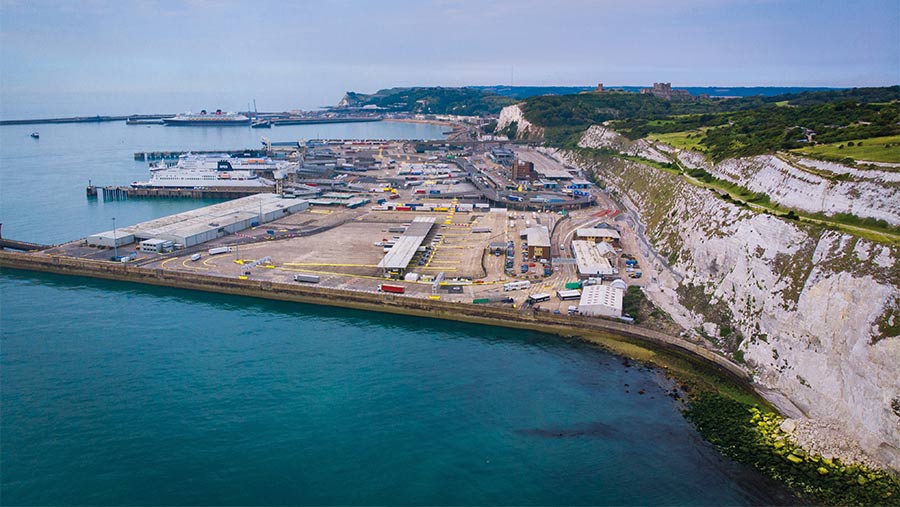 © Adobe Stock/James
© Adobe Stock/James Brexit became reality at the start of the year, as the 11-month transition ended and the new Trade and Co-operation Agreement (TCA) with the EU kicked in.
But what has this meant at ground level and how are things set to evolve in the coming weeks and months?
In a new three-monthly series, Farmers Weekly takes stock of the situation to look at the recent past and the immediate future.
Trade update

Dover Port © Adobe Stock/James
Early fears that the new, post-Brexit era would be characterised by logjams at the ports, and food shortages in the shops, proved to be only partially true.
Widespread blockages were averted mainly as a result of the TCA, signed by London and Brussels on 30 December 2020, which avoided the imposition of tariffs on cross-Channel trade.
Being outside the Single European Market still means there is additional paperwork for traders and hauliers to contend with.
But major disruption was avoided, in part due to the fact there had been some stockpiling in supply chains at the back end of 2020, but also because exporters delayed shipments to see how it all panned out.
Recent trade figures from the Office of National Statistics (ONS) bear this out. Overall, the UK saw a 41% fall in the export of all goods in January compared with the previous month, while imports were down 29%.
For food and live animals, the figures are even starker, with exports down a massive 64% – or £700m – in January, while imports saw a greater drop in monetary terms. The ONS points to hold-ups affecting the Scottish seafood sector in particular, with consignment sign-off apparently taking six times longer – though all fresh produce has been affected to some extent.
The fact that hauliers now have to have both UK and EU certificates of competence has not helped.
What are the main bureaucratic requirements?
With regards to shipments from the UK to the EU, there are three main elements for exporters to contend with:
Customs declarations These are standard for any Free Trade Agreement to ensure that any particular consignment is OK to enter a country – for example, that they have the correct export health certificates. They also indicate whether any tariffs are due.
Sanitary and phytosanitary controls All consignments are subject to documentary checks. A proportion have to undergo physical checks, which causes delays and additional cost, especially if samples have to be collected. All live animals have to be checked, 30% of poultry and chilled dairy products, and 15% of beef, lamb and eggs.
Rules of origin regulations These are fiendishly complicated and catch many traders out, especially those with integrated supply chains. Under the TCA, if 85% of a consignment – say a container of lamb – is from an eligible country, then no tariffs will apply and it will be cleared. But if there are mixed products on board, then separate checks will be made and tariffs may apply.
Source: Andersons Farm Business Consultants
Practical experience
But what has been the experience on the ground?
Informing a recent House of Lords investigation into post-Brexit trade, Bristol-based cheesemaker Peter Alvis, of Alvis Bros, estimated there were now 44 steps involved in exporting an organic product of animal origin with some third party ingredients, compared with just seven when the UK was in a customs union with the EU.
“We move from a lead time of approximately two weeks to a lead time of over four weeks,” he told the Lords’ committee.
“The new arrangements are making us slower, less flexible and add cost. We can expect that the requirements will be too much for small organic producers on their own.”
Michael Haverty, a partner at farm business consultant Andersons, has spelled out the financial impact of such delays.
On average, red meat faces extra costs of 1-3%, poultry 5-8%, and dairy 1-7%. But if the consignment is “unlucky” and subjected to closer inspections and even sampling, those costs could reach anything between 25% and 50%.
Given that the EU and UK, by dint of recent history, have almost identical sanitary and phytosanitary rules, NFU Scotland has suggested that export health certificates and customs declarations should only be triggered when either party makes changes to those standards.
Meanwhile, a lack of border control posts on the other side of the English Channel has effectively curtailed the trade in breeding animals.
Imports from the EU
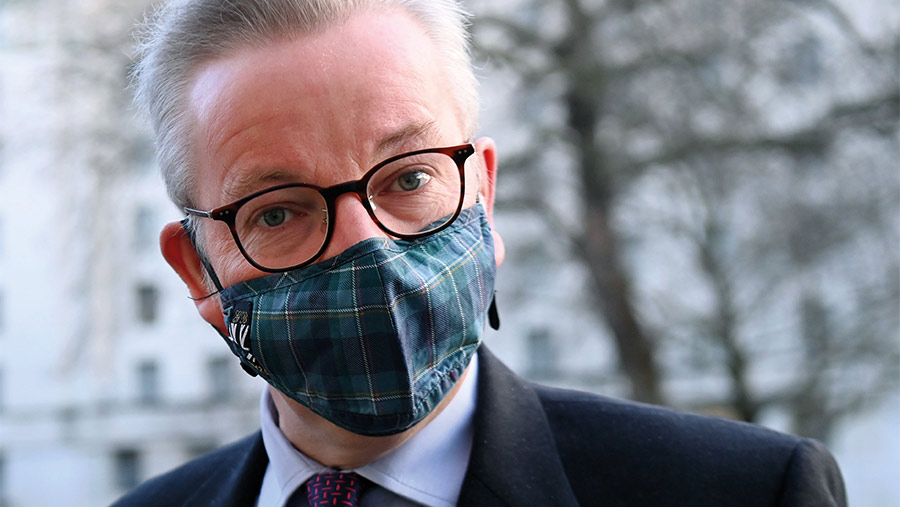
Michael Gove © Shutterstock/Andy Rain/EPA-EFE
While exports to the EU have been subject to full regulation, goods coming the other way have enjoyed much freer passage, thanks to the phased introduction of the UK Border Operating Model.
Under this arrangement, it was intended that additional certification and SPS controls would be delayed, with export health certificates for products of animal origin only required from 1 April, and full safety and security declarations only effective from July.
But Cabinet Office minister Michael Gove has recently announced that, due to the impact of Covid on border resources (which has hindered the building of border control posts and stymied the recruitment of veterinary inspectors), this should be delayed.
As such, pre-notification requirements and export health certificates will not now be required until 1 October 2021, while customs declarations may be deferred until 1 January 2022.
Full safety and security declarations, as well as physical SPS checks on agri-food imports, will also not be required until 1 January 2022.
And checks on live animals and certain plants at border control posts will not now take place until 1 March 2022.
Farming organisations have criticised the decision to extend the grace period, especially the National Pig Association, which says the burden-free influx of imports is contributing to low prices, while a lack of checks represents a health risk.
But food retailers and manufacturers have welcomed the delays, without which they feared potential food shortages for consumers.
Northern Ireland latest
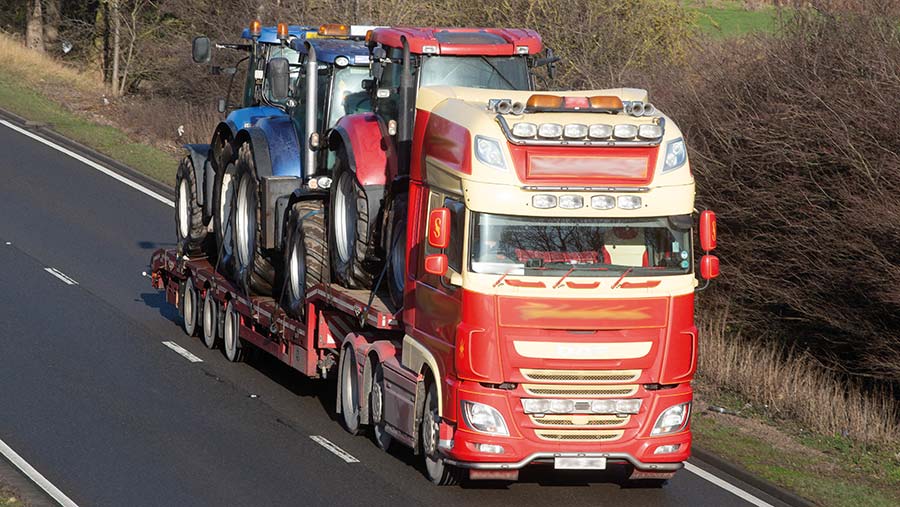
Until recently, second-hand machinery moving from GB to NI had to be 100% clear of soil and other potential contaminants © Tim Scrivener
Separate trade arrangements are in place for Northern Ireland, which is being treated as if it is still in the European Single Market.
Under the Northern Ireland Protocol, which took effect on 1 January 2021, goods flowing from Great Britain to NI have required customs documents and been subject to border checks. This applies particularly to milk, meat, fish and eggs, as well as live animals and plant products, with traders required to pre-notify each of their consignments 24 hours before movement.
However, as “trusted traders”, supermarkets were given an initial three-month exemption, to allow them time to adapt and avoid food shortages. And some chilled products, such as sausages and mince, were given a six-month derogation.
But with the system still not working properly, the UK government has now unilaterally extended the grace period to October – leading to threats of legal action by Brussels.
Requirements for second-hand farm machinery and rooted seedlings and trees to be “free from soil or other potential contaminants” have also been temporarily waived.
Despite this, NI farmers have experienced numerous problems with input supplies, for example, gaining access to certified seed from GB for planting this spring.
Other problems include residency periods for livestock that have travelled to GB to be shown before they are allowed re-entry into NI, and livestock identification changes.
“The NI Protocol was designed to allow trade flows to continue. However, trade flows that have existed for years are now being disrupted because of it,” said Ulster Farmers Union president Victor Chestnutt.
Seed potato export barriers
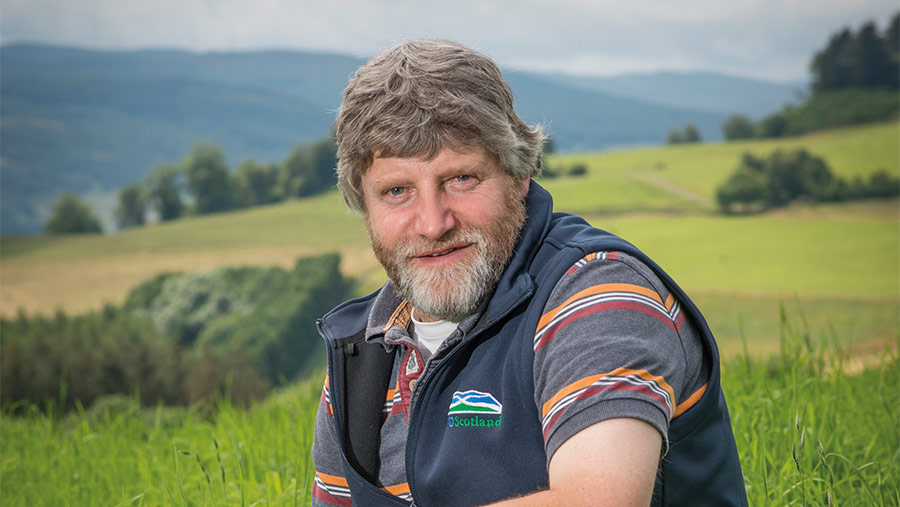
Martin Kennedy @ Ian Fleming
Another casualty of Brexit has been the seed potato sector, which would normally export 30,000t worth £13.5m each year to the continent – mostly high-health stock from Scotland.
This trade has been halted by the EU’s refusal to accept equivalence of standards – a move which has also effectively halted shipments to Northern Ireland.
Responding to a recent Scottish government consultation, NFU Scotland president Martin Kennedy said seed potato growers across the UK were being severely impacted by the continued blocking of the UK’s application for equivalency.
“There has to be parity for the sector,” he said. “The current derogation that allows EU seed potatoes to come into the UK until the end of June 2021 has been unhelpful in encouraging an agreement on equivalence and we are calling for this not to be extended.”
Defra secretary George Eustice has ruled out “tit-for-tat” retaliation before then.
Open Doors and TAC report
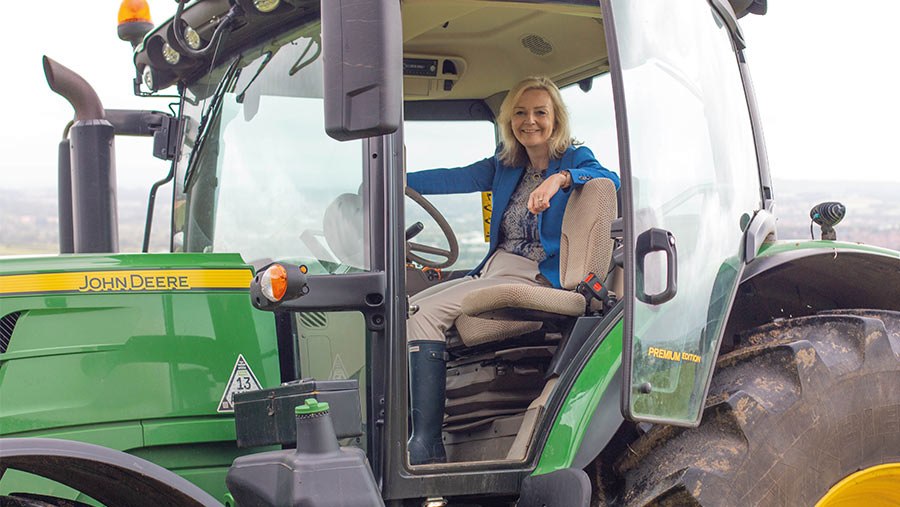
Liz Truss © Department of International Trade
The final piece of Brexit trade news in the past three months has been the publication of the long-awaited Trade and Agriculture Commission (TAC) report and the launch of a new “Open Doors” initiative to boost exports.
The TAC report contained few surprises, setting out the principles government should adhere to when negotiating trade deals – including a commitment to ensure British farmers are not undermined by cheap, substandard imports, using tariffs to ensure this.
But the report is only advisory at this stage. The TAC will have slightly more teeth when it becomes a statutory body later this year, as it’s analyses will then have to be considered by MPs in the House of Commons before future trade deals can be signed off.
In anticipation of a more open-trading environment, international trade secretary Liz Truss has also launched her new Open Doors export campaign. With an initial budget of £2m, the intention is to help British food exporters “take it to the next level”, with a series of workshops and mentoring schemes.
Longer term, she plans to install more agri-food counsellors in offices abroad and bolster the UK presence at international trade shows.
Trade: What to look out for in the next three months
- Terms of reference for the new statutory Trade and Agriculture Commission (TAC) may be set
- Ongoing discussions about “equivalence” of standards for seed potatoes and certified seed
- EU animal health regulations take effect (21 April) meaning export health certificates will be needed on more products of animal origin
- Full ratification of the TAC, which may then lead to some easement in the bureaucracy surrounding exports to the EU
- Identification of where UK border control posts will be located and building to commence
- Possible legal action by the EU against Westminster for breaching the NI Protocol
- June deadline for EU citizens in the UK to apply for residency
- Progress in free-trade talks with Australia and New Zealand
Domestic farm support policy
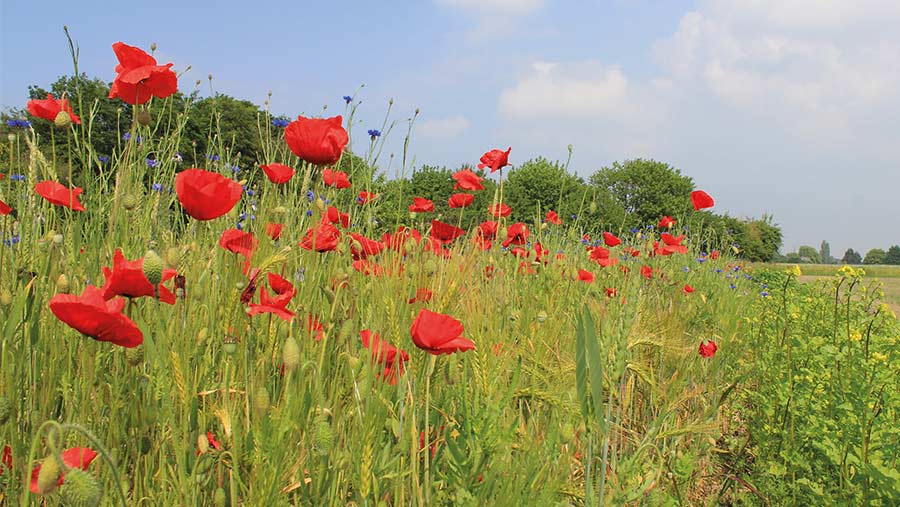
© Adobe Stock/Angelique
On the domestic front, there has been some further clarity for English farmers about the next steps towards a “public money for public goods” alternative to direct payments.
In early March, Defra secretary George Eustice set out the plans for the new Sustainable Farming Incentive (SFI) pilot scheme, for which expressions of interest are now invited.
This will build on the tests and trials that have been ongoing since 2018, with the pilots due to fully launch in October to test a working version of the scheme from start to finish.
We have learned that, initially, there are eight different “standards” under the pilot covering the management of arable land, grassland, hedgerows, woods and watercourses.
To be eligible, farmers must be registered with the Rural Payments Agency and receiving Basic Payment Scheme (BPS) money. There will be three levels of involvement and payment for each standard – introductory, intermediate and advanced.
Payments have been designed to reflect current Countryside Stewardship (CS) scheme payments, with £28/ha payable for meeting introductory arable land standards (such as providing year-round resources for birds and rapidly incorporating slurry and manure to cut emissions), to £74/ha for more advanced actions (such as having areas of tall vegetation for nesting birds and using precision application of inorganic fertiliser).
But while the Defra announcement provided some further detail on how “public money for public goods” will work in practice, further information on the exact management practices that will be required to take part in the pilot are still to be confirmed.
The pilot scheme will pave the way for a full SFI scheme, available to all from mid-2022.
It also became apparent that the SFI – rather than being some kind of “stepping stone” scheme towards the new Environmental Land Management (ELM) scheme – will actually become the first level of ELM, though it will be developed and expanded from mid-2022 to late 2024.
The other two elements will be the Local Nature Recovery scheme (formerly referred to as “Tier 2”) which will pay for actions to support local nature recovery and encourage farmer collaboration; and the Landscape Recovery scheme, which may involve large-scale tree planting and peatland restoration.
Farmers are still being encouraged to join CS, which opened for 2022 agreements in February.
Defra farming minister Victoria Prentis said: “We are guaranteeing that anyone who enters a new CS agreement will be able to leave early in order to join the Environmental Land Management scheme once fully rolled out in 2024.”
Meanwhile, legislation was passed last week (18 March), confirming the 5% cuts to all English farmers’ BPS funding for 2021, with those receiving more than £30,000 subject to deeper cuts.
While all this applies to English farmers, the devolved regions have made less progress in advancing their future farm support policies. The Welsh government issued its White Paper at the back end of last year, setting out plans to phase in a Sustainable Farming Scheme from 2023, which will reward farmers for environmental delivery while phasing out BPS.
Both Welsh farming unions wrote jointly to the Welsh government in February, complaining that basic food production was being overlooked.
Domestic policy: What to look out for in the next three months
- Further details of the required management practices for the SFI pilot to be published
- Applications for SFI pilot to be invited from pre-selected farmers from June
- Consultation on Defra’s plans for “delinking” BPS from agricultural production, and new “lump sum” payments to take future payments up front and leave the sector
- Further information on the Future Farming Resilience Fund (Defra’s transitional advice scheme)
- More details of the proposed Welsh Sustainable Farming Scheme – after 6 May Senedd elections
